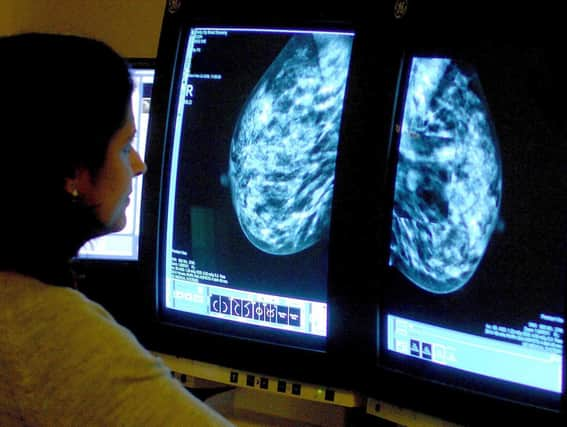Newly-approved NHS drug could give cancer patients 'more precious time'


The Scottish Medicines Consortium (SMC) has given the green light for doctors to use trastuzumab deruxtecan, which is also known as Enhertu, to help those suffering from HER2 positive breast cancer, where the disease has spread.
The drug was granted approval after being considered as part of the SMC’s patient and clinician engagement process, which is used for medicines to treat patients with rare conditions and those at the end of life.
Advertisement
Hide AdAdvertisement
Hide AdTrastuzumab deruxtecan is already available for use in NHS Scotland in certain circumstances, but now patients should be able to get it earlier.
Scott Muir, the SMC’s chairman said the data for trastuzumab deruxtecan is “very promising” and could allow patients “to live for longer, without symptoms.”
“The committee is aware of how highly valued this additional time is to patients and their families,” he added.
Melanie Sturtevant, associate director of policy, evidence and influencing at Breast Cancer Now, said it’s “brilliant” that trastuzumab deruxtecan will be made available on the NHS.
“This exciting new treatment can give patients more time before their disease progresses, compared to the current standard treatment, giving women more precious time to do the things that matter to them,” said Ms Sturtevant.
“Trastuzumab deruxtecan brings people living with this type of incurable secondary breast cancer the hope of more time to live, and now we look forward to ultimately understanding just how much extra time this drug could give them.”
The SMC also approved pembrolizumab - sometimes known as Keytruda - as a treatment for people with skin cancer who have had surgery.
Its makers, MSD, say the drug could “reduce the chances of a patient’s skin cancer returning after surgery”.
Advertisement
Hide AdAdvertisement
Hide AdIt had previously been given to patients with a more advanced form of the disease, with its use extended to allow it to be given to patients whose cancer is at an earlier stage.
Susanna Daniels, the chief executive of charity Melanoma Focus, welcomed the decision, saying: “Over 1,200 people are diagnosed with melanoma every year in Scotland.
“Fear of recurrence of cancer is also a huge emotional burden for patients and families and in particular for the growing population of melanoma patients who are diagnosed at a younger age with the majority of their life ahead of them.
“It is a mark of how far we have come in recent years that we can now improve survival and significantly reduce those fears.
“I am thrilled that the SMC have recognised the value this treatment adds for adolescent and adult patients with high-risk stage 2 melanoma by reducing the likelihood of recurrence, and that it will now be available on a routine basis in Scotland.”
However, the SMC was unable to approve darolutamide, which is also known as Nubeqa, as a treatment for prostate cancer, due to “uncertainties” in the clinical and cost effectiveness evidence presented.
Mr Muir stated: “We could not accept darolutamide as the evidence provided was not strong enough to satisfy the committee.
“The comparison with current treatments used in NHSScotland was associated with significant uncertainty that darolutamide would offer value for money.”
Comments
Want to join the conversation? Please or to comment on this article.